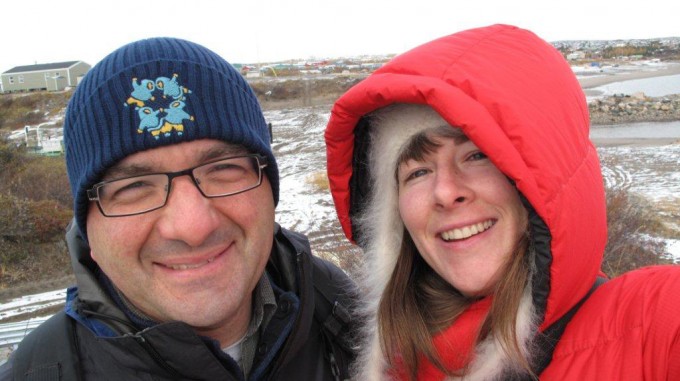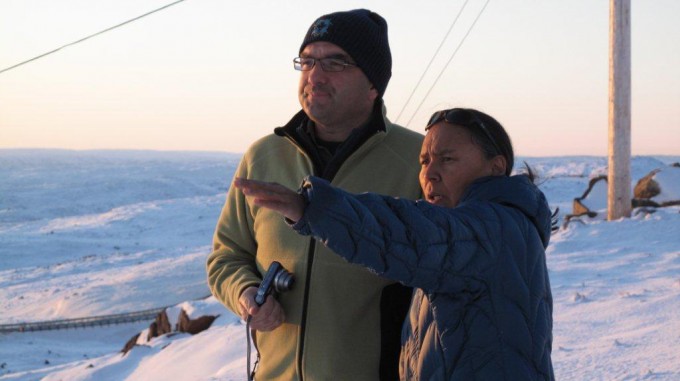We asked Tides Canada’s Dave Secord and Kim Hardy to reflect on their year’s travels meeting with Northerners from Inuvik to Pond Inlet to find out what role philanthropy could play in supporting Northern solutions for Northern challenges. Here is what they had to say…

We just returned from the final leg of our travels across Canada’s great north to scope out what roles philanthropy might play in this vast and rapidly changing landscape. Starting last spring, we set out on a series of trips to have first-hand conversations and exchanges with Northerners to better understand the economic, environmental, and human well-being challenges and opportunities they are experiencing – and northern-based solutions and innovations where philanthropy could play a constructive role.
We’ve deliberately avoided defining the “arctic” or “north” too narrowly, but we’re definitely including not only Canada’s three territories (Yukon, NWT, and Nunavut) but also the Inuit parts of two provinces (the Nunavik region of Quebec and the Nunatsiavut region of Labrador).

From Whitehorse to Inuvik, Fort McPherson to Behchoko, Kuujjuaq to Iqaluit to Pond Inlet (to name a few!), we were met with kindness and generosity and were overwhelmed with the innovation, creativity, and optimism of people across the North to overcome the pressures of encroaching development, rapid social change, and a steadily shifting climate. We began to build, or built upon, relationships with leaders from every sector and walk of life: Inuit hunters, Gwich’in council members, land claims organizations, hamlet mayors, researchers and students, artists and aboriginal lawyers, committed bureaucrats and powerful (if informal) community leaders and thinkers.
We descended a ladder three stories into permafrost to explore the Tuktoyuktuk community freezer, ate fresh-caught arctic char with a highly skilled hunter and her husband (a deputy minister), visited a community-led wellness centre in Clyde River on northern Baffin Island, toured the lab of a researcher to detect parasites from samples sent in by walrus hunters, and spent the afternoon with the remarkable negotiator of the Tlicho land claim – a governance system unlike any other in Canada.
We have a lot of work to do in synthesising all we’ve learned and to identify constructive and effective roles for philanthropy in this complex and culturally unique part of Canada. As we head into this planning process the overarching theme is clear – Northerners have innovative solutions for the complex problems they face and our role is not to import southern agendas and solutions; it is to support northerners in shaping and defining their aspirations while protecting the magic of the people, land, and sea in the diverse places that make up the Canadian arctic.